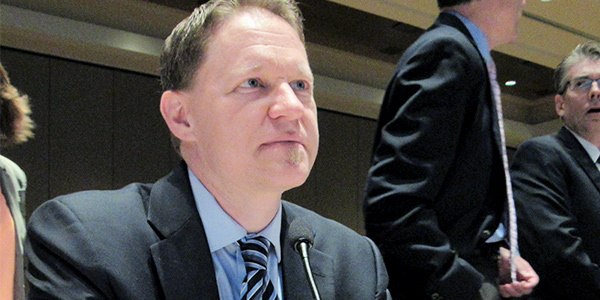Uneconomic self-commitments of coal resources in MISO’s footprint are not occurring at the clip that critics imagine, the RTO’s Independent Market Monitor said in new findings this week.
IMM David Patton released an analysis showing that most of the footprint’s coal self-commitments are lucrative. The Monitor found that 90% of 6,300 coal resource commitments from 2016 to 2018 were profitable. In 2019, 83% of coal self-commitments were economic. Patton said the 2019 percentage was lower because overall energy prices drifted downward during the year.
“Generally, our coal resources are starting when it’s economic to start, despite some recent concerns and studies saying otherwise. We don’t find those studies to be credible,” Patton told MISO board members during Tuesday’s virtual Markets Committee meeting. “In fairness to the authors of those studies, they don’t have access to some of our cost data.”
The report is a response to increasing scrutiny around coal plants’ self-scheduling and studies that have reported that customers shell out more in rates as a result. The Union of Concerned Scientists has said Xcel Energy, DTE Energy, Cleco Power and Consumers Energy are MISO’s worst offenders. (See UCS Analysis Knocks Coal Self-commitments.)
The Monitor said that when coal self-commitments were unprofitable, it was sometimes because of decisions based on MISO’s day-ahead market prices that didn’t pan out. Had day-ahead pricing prevailed, Patton said, less than 10% of coal commitments between 2016 and 2019 would still have been made at economic losses.
“While this indicates room for improvement, we find that the vast majority of coal resource commitments were efficient,” Patton wrote. “Overall, we believe that the decisions of the owners of coal resources to start them or to keep them online have been efficient, even when they are not profitable and generating negative operating net revenues.”
The Monitor did find that merchant coal generation tends to operate more economically than its integrated counterparts. “A small share of integrated utilities operate much less efficiently than others,” Patton said.
He urged those utilities to take extended outages in shoulder seasons and consider economically offering their resources more frequently in the day-ahead market. Patton said that “economic offers that are discounted to reflect the costs of cycling would allow the day-ahead market to economically evaluate whether to keep the resources online for the following day.”
Patton also suggested MISO consider publishing more hours of future pricing data. He noted that while the grid operator’s day-ahead market evaluates commitments and schedules over 36 hours instead of 24, it does not release the prices for the additional 12 hours beyond the following day. Patton said those additional 12 hours of data could “provide valuable insight to coal resource owners seeking to make the most efficient dispatch decision possible for the following day.”





